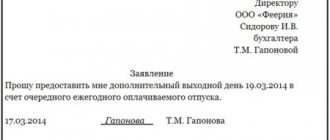The article will discuss how the bankruptcy of legal entities by the tax inspectorate
. After reading the information, you will understand what you need to do if the fiscal service requires you to investigate the insolvency of a commercial organization.
The following method can be cited that can help convince tax authorities not to file for bankruptcy of a company. A problematic payer can show documents on the basis of which it will be clear that he can pay off the debt to the tax authorities by collecting his own receivables. It is important that the “receivable” is greater than the fiscal debt. It is also necessary to have a plan for paying off the debt. It should also be noted that a court decision on the requirement to receive an overdue obligation is most likely not the correct justification for the tax authority. An example is a case where a company won a claim in arbitration, in which it decided in favor of the debtor, awarding collection of receivables.
However, it is necessary to understand that fiscal services can appeal this verdict. The basis here is that the fulfillment of the obligation to pay off the “debt” is only a probability that may not occur. In addition, the question arises: are the amounts of penalties included in the debt to the Federal Tax Service itself? To this, lawyers answer that only the principal debt is taken into account.
They also explain that a claim regarding the insolvency of a legal entity by the tax authority can be satisfied only if a court decision was previously made to repay financial obligations at the expense of the payer’s property. The law gives 30 days for this procedure, and if it is not implemented within this period, only after that the Federal Tax Service can initiate a case of insolvency of the tax payer.
Bankruptcy of legal entities by the tax inspectorate
Let us repeat once again - tax authorities can begin the insolvency procedure only a month after the court verdict. But in the case when the counterparty’s monetary obligations are not fulfilled. If we talk about legislation, then this is evidenced by government decree No. 257 of May 29, 2004, which includes the procedure for conducting bankruptcy proceedings in the interests of the Russian Federation as a creditor.
This regulatory legal act specifies a period of up to three months, according to which the Federal Tax Service needs to make a decision on filing an application with the arbitration court to initiate insolvency in relation to a certain legal entity. By the way, it should be mentioned that the main criterion for a problem debtor is the amount of three hundred thousand rubles for monetary obligations to creditors. You also need to highlight Federal Law No. 127 on bankruptcy, in which you can find a lot of useful information about this procedure regarding commercial organizations.
Summary
Proceeding through the courts for personal bankruptcy is an expensive procedure that may be too large for some debtors. Therefore, if all the conditions for the simplified procedure are met, you can resort to it, then there will be no costs.
It is not easy for any bankrupt to restore his reputation, regardless of whether he went through a judicial or extrajudicial process. The worst thing is if a person needs borrowed money. Information about damaged credit history is stored in the Credit History Bureau for at least 10 years from the date of the last payment. However, from 2022 this period will be reduced to 7 years. Therefore, bankrupts will be able to start a new financial history with a clean slate if they do not take out loans or accumulate other debt obligations for 7 years after bankruptcy.
Read about what a debt hole is and how to get out of it without bankruptcy.
Bankruptcy of legal entities with debts to the tax authorities
The Federal Tax Service has all the powers of the executive branch of the Russian Federation, so the tax authority can collect all the information about the obligatory payments of the debtor, for example, to the Social Insurance Fund and the Pension Fund. The amount owed above also applies to payments to these authorities. When the tax service files a claim for the insolvency of a company due to non-payment of taxes, it also needs to inform the FSS and the Pension Fund of the Russian Federation about this fact. Upon her request, these government agencies must provide data on the amount of obligations of a certain company to them. Please take this information into account when you contact the Federal Tax Service.
Next, tax authorities combine the information received from organizations and send it to arbitration, which already includes the debt beneficiaries in the list of claims. Experienced lawyers say that if a legal entity has not paid mandatory payments in the amount of more than three hundred thousand rubles within 90 days, then the tax service, in accordance with the law, is obliged to file a claim for the insolvency of a commercial organization.
By the way, for information - for an individual entrepreneur, the amount of debt at which the Federal Tax Service initiates bankruptcy of an entrepreneur is at least half a million rubles. Also, the reason for carrying out this procedure may be non-payment of tax payments as an agent. This is reflected in the comments of the Supreme Court which clarify this aspect. But, as experts say, this is a right, not a responsibility of tax officials.
Comments: 3
Your comment (question) If you have questions about this article, you can tell us. Our team consists of only experienced experts and specialists with specialized education. We will try to help you in this topic:
Author of the article: Klavdiya Treskova
Consultant, author Popovich Anna
Financial author Olga Pikhotskaya
- Vasily
04/12/2021 at 17:26 “There is no point in keeping silent about any debts or, on the contrary, exaggerating them, all data will be double-checked.
“What’s the point of submitting a list of debtors at all if Big Brother already knows everything? Reply ↓ - Oleg
03/24/2021 at 03:10Quite a complete summary. I searched a lot, but often I come across rewrites from people who don’t know. Everything is complete here and there are links for deeper reading. Well done Claudia (with such knowledge, you can write your middle name).
Reply ↓
Klavdiya Treskova
03.30.2021 at 21:17 Post authorThank you very much, Oleg, for your positive review of the material, I hope it was useful for you.
Reply ↓
The tax office files for bankruptcy of a legal entity
In this case, the Federal Tax Service relies on government resolution No. 257. It indicates that the fiscal authorities can file a claim for the insolvency of a company in a judicial body no later than three months from the date the bailiff service receives an arbitration decision on the implementation of requirements for the payment of mandatory payments based on the property of a willful defaulter.
The tax service is obliged to initiate bankruptcy no later than five working days from the date of the resolution on this issue. But, as the Supreme Court points out, these are not mandatory deadlines, and they have meaning, most likely of an organizational nature. Let us explain - if the Federal Tax Service “forgot” about ninety days, then this will not prevent it from further initiating bankruptcy of a certain company.
Tax audit in case of bankruptcy of a legal entity
Commercial organizations are planning to undergo insolvency proceedings in order to resolve issues related to the conduct of their activities. It is believed that this is also a good way to avoid coming to the attention of the fiscal authorities, since tax authorities most often do not like to carry out audits of pre-bankrupt companies - in this case, collecting debt on mandatory payments from them seems unlikely.
But there are exceptions when the Federal Tax Service still orders inspections, since in accordance with the law it can carry out audits of companies with economic problems. But in what cases can tax officials still come to the management of companies? Several factors must come together here. Let's move on to analyzing this situation.
What about the arrears?
What will happen to the company’s tax debts if the court refuses to accept the tax authorities’ application for bankruptcy? They need to be written off, as stated in the Review.
In this case, one must be guided by paragraph 4.3, paragraph 1, Article 59 of the Tax Code, which states that the adoption by the court, due to the lack of funds sufficient to reimburse legal expenses for bankruptcy proceedings, of a ruling to return the application of the authorized body, is an independent basis for recognition arrears, debts on penalties and fines that are hopeless for collection.
To write off debt on this basis, it is not necessary to establish any additional circumstances.
Moreover, such debt write-off in itself does not prevent the tax authorities from subsequently filing a general claim application to hold the person controlling the debtor liable for the written-off obligations and cannot serve as the only basis for excluding the written-off debt from the total liability of the controlling person.
In addition, if, after the application for declaring the debtor organization bankrupt is returned to the authorized body due to the lack of funds necessary to cover the costs of the bankruptcy case, the property of the debtor, hidden by him, or other circumstances indicating the possibility of the property becoming the property of the debtor are revealed (for example, through the actual receipt of property through the procedure for challenging transactions), which were not and could not be reliably known to the authorized body, upon his application, the determination on the return of the application may be revised.
If the ruling is revised, the court, establishing the total volume of the debtor's obligations to the budget, checks whether the tax authority has restored, in accordance with the legislation of the Russian Federation, the amounts previously written off on the basis of the canceled judicial act.
Training course from the “Clerk” team “Tax audits. Defense tactics" Protection methods tested in practice, from Ivan Kuznetsov, a tax expert who worked in the Department of Economic Crimes.
- The first video is free.
- We provide a certificate at the end of the training.
- Distance learning.
Sign up for the course for 5,500 rubles.
The tax office filed for bankruptcy, what to do?
- When the Federal Tax Service declares bankruptcy of a debtor
- Growing tax debt
- What actions to take if the tax office filed for bankruptcy?
- Bankruptcy of a legal entity at the initiative of the Federal Tax Service
- How to defend real estate if the tax office filed a lawsuit for the bankruptcy of our non-profit organization
- The tax office filed for bankruptcy, what to do?
- Bankruptcy of an enterprise at the request of the tax authority
- The fourth myth
- What to do if you have debts to the tax authorities
- Bankruptcy procedure for an LLC with debts in 2021
Dear readers!
We describe typical ways to resolve legal issues, but each case is unique and requires individual legal assistance.
To quickly resolve your problem, we recommend contacting qualified lawyers on our website.
FREE CONSULTATIONS ARE AVAILABLE TO ALL CITIZENS AT THE SPECIFIED PHONE NUMBERS OR VIA CHAT MODE
How does the tax office behave in the event of bankruptcy of legal entities?
Once the fiscal authority learns that a commercial organization has filed an application for insolvency status, it needs to decide to conduct an audit against this company. But in general, the capabilities of the Federal Tax Service are limited, since it is a third-priority creditor, which means that it will have little motivation to check the future bankrupt. A meeting of debt beneficiaries also cannot help the tax authority somehow influence the debtor legal entity.
What are the tax procedures for bankruptcy of legal entities?
can participate? It must be said that financial claims from the Federal Tax Service are often not included in the list of beneficiaries of debts during insolvency proceedings. This means that the possibility of receiving tax revenues from a pre-bankrupt payer is reduced. This is due to the fact that fiscal workers do not meet the deadlines for submitting financial claims so that they are taken into account by the arbitration court. In order not to worsen their statistics on the collection of tax payments, specialists can, after some time, cancel the audit of a legal entity that was previously assigned. But, if you answer the above question about the procedure, then this can only be used at the stage of bankruptcy proceedings.
When a company continues to operate, fulfilling its financial obligations for payments, and is at the stages of restructuring its activities, such audits can be fully carried out by the Federal Tax Service. Every leader of his or her organization needs to learn this.
In addition, when a commercial organization goes through bankruptcy proceedings and it turns out that it has a large debt on mandatory payments to the tax authorities, this increases the likelihood of a desk audit by the service. In another case, as already written, this will be unlikely, since the Federal Tax Service lacks much motivation.
Another way to prevent the tax authorities from coming to you is that you can also hold an event similar to closing a business. In this case, we mean such a procedure as the reorganization of an enterprise.
Who most often falls into tax debt?
The list of tax debtors primarily includes persons who have problems repaying their loans. Losing a job while under mortgage obligations leads to the rapid formation of debt and this situation is rarely resolved favorably for the borrower.
The second category of debtors are bankrupt entrepreneurs. An unprofitable business generates large debts to organizations, banks, the Federal Tax Service, and extra-budgetary funds. At the same time, tax debts not related to commercial activities are growing.
The third category is people with a low degree of responsibility. They don't pay taxes and utility bills without good reason.
If the taxpayer does not transfer the required amount, the Federal Tax Service makes a recovery in court, within the limits of the amounts specified in the request.
What inspection deadlines does the tax office set during bankruptcy procedures for legal entities?
In accordance with the regulatory legal acts of the Russian Federation, the audit activities of the fiscal authority are carried out within two months, in extreme cases - three months. If we talk about normal practice, then deadlines may be added due to some suspensions of the verification process. Also, fiscal workers have the right to draw up a document including audit details within sixty days. This act will be shown to the payer, who can also appeal it within two months. These are important timing clarifications that should not be forgotten.
If you count the time from the initial period of audit activity to the execution of the decision on payment of mandatory payments, then a period of at least six months can pass, but in practice much longer.
But it must be said that usually tax authorities will be included in the register of creditors only when no more than thirty days have passed since the publication of a message about the insolvency of the debtor commercial organization in the media. Only in this case can the Federal Tax Service participate in the selection of a financial specialist as an intermediary between creditors and the defaulter, and also influence the establishment of a specific insolvency procedure.
What are the consequences
Not every potential bankrupt thinks in advance about what consequences await him after declaring financial insolvency. Among the negative aspects it is worth highlighting:
- It is necessary to notify banking institutions of your status.
- It is prohibited to hold leadership positions and be part of the founders of a legal entity.
- In some cases, the court may prohibit travel abroad.
- Re-registration of insolvency status is possible only after five years.
- Information about the insolvency of each individual citizen is entered into a special register.
It is necessary to know how the procedure for canceling current taxes in the event of bankruptcy of citizens is carried out. Before deciding to initiate financial insolvency, it is worth consulting with a competent lawyer who will help you collect documents, represent your interests in court and provide support at every stage of the process. Resolution of issues regarding taxes and bankruptcy should be trusted to professionals.
How is a tax audit carried out in the event of bankruptcy of legal entities?
Such an audit is carried out in accordance with the Tax Code, as indicated by Article 88. To carry it out, the permission of the heads of a commercial organization or the Federal Tax Service is not required. During the audit process, the company's financial documents are analyzed. If necessary, tax officers may require explanations, for example, regarding the balance sheet. You should also expect that they will request other documents to analyze the taxpayer's situation.
All requests from the fiscal authority regarding discrepancies found in accounting must be satisfied within five days when the commercial organization received these notices.
When a legal entity undergoes bankruptcy of legal entities by the tax inspectorate
, the Federal Tax Service may involve third parties who will help audit the position of the enterprise. At the same time, the person being checked may not find out about this until he receives a document with the data obtained during the analysis of the company.
How does a desk audit take place in case of insolvency of a legal entity?
It is carried out on the territory of the fiscal authority, that is, employees do not travel to the site of the debtor company. In this case, tax authorities analyze the documents provided by the enterprise and, if necessary, clarify the information with the debtor.
But how can a taxpayer avoid this procedure? Several factors must come together here. Firstly, the company always submitted its reports on time, which indicates its responsible attitude. Secondly, she did not have receivables and payables. Thirdly, the company provided the Federal Tax Service with a report with a zero balance. Fourthly, a legal entity has one owner, that is, a founder. And lastly, the bankrupt company has not carried out work for three years.
Consequences of bankruptcy: how to live on?
The government, through the media, is trying to put pressure on citizens, presenting the bankruptcy procedure not in the best light. In the articles, “experts” promise a lot of problems for the newly bankrupt, a difficult life in exile and other consequences. But the situation is much simpler. The main negative points include:
- the need to inform new creditors about the presence of bankruptcy (bank loans, private loans, etc.);
- inability to hold leadership and management positions in financial institutions and legal entities;
- possible restriction of freedom of movement through a ban on traveling abroad (if there is a court order). But, as a rule, the sanction applies only during the consideration of the bankruptcy case. Another point is that you can re-register for bankruptcy status only after 5 years, so it will not be possible to put the procedure on stream and constantly maneuver between debts to the tax office. If we are talking about a conscientious citizen, this law can really be useful and even life-saving. But do not forget that there is a register of bankruptcy of individuals, which contains lists of all citizens who have received this status.
How is a tax audit carried out in case of bankruptcy of legal entities on the site of the enterprise?
If we talk about laws, they do not provide for an on-site audit, since by inspection we mean such a procedure on the site of a commercial organization. For this to happen, you must obtain permission from the head of the fiscal authority. At the same time, the top management of the debtor company or the financial manager must assist tax employees in their work on the territory of the enterprise so that they can properly inspect and analyze financial documents. By the way, the debtor also has the right to be provided with witnesses during the inspection and seizure of documentation. This information can be very useful for financial managers of a commercial organization - take it into account.
The question arises, what will happen to the audit when, during the implementation process, the debtor company begins to undergo insolvency proceedings? The verification will take place as stated in accordance with the law, but now the requirements of the Federal Tax Service will be satisfied only after the latter are included in the list of creditors.
Is control exercised by tax authorities when an enterprise goes through bankruptcy?
As already indicated, fiscal authorities audit the company as usual, even during the process of obtaining insolvency status. Also, during this procedure, the top management of the enterprise no longer participates in the management of the company - now this is the prerogative of the arbitration manager. Therefore, the Federal Tax Service sends its requests for new data only through it in accordance with Russian legislation. It is the court that appoints this specialist and determines his powers.
Since mandatory tax payments are third priority claims, it is very unlikely that the company will satisfy these claims. Therefore, after the sale of the enterprise’s property, its debts will be considered repaid. But the Federal Tax Service can try to solve this problem in the following way.
She can sue the managers and owners of a problematic commercial organization so that they can be held vicariously liable. Especially if it turns out that it was a deliberate bankruptcy. Because unwillingness to pay taxes in our country is a criminal offense. When the fiscal audit ends, a report on tax violations is created, after which the Federal Tax Service decides to bring the debtor to additional payment of tax payments, and if the company does not do this, then the tax authorities transfer the case to the Ministry of Internal Affairs, which can already bring the top management to criminal liability and initiate a case in their regard.
What debts will not be relieved by bankruptcy of an individual?
During the bankruptcy process, a person’s debts will not be written off:
- for compensation for harm to life, health, moral damage and alimony;
- for payment of wages and severance pay;
- when brought to subsidiary liability;
- for compensation for losses that were intentionally or carelessly caused to a legal entity of which the person was a participant;
- for compensation for damage to property caused intentionally or through negligence.
Extrajudicial bankruptcy will not get rid of debts either:
- not included in the list of debts to creditors, which was attached to the application for extrajudicial bankruptcy;
- appeared during the period of extrajudicial bankruptcy.
In addition, a person will not be released from debts if any of two circumstances arise:
- The bankruptcy was recognized as fictitious and a criminal case was initiated on this fact.
- It was revealed that the applicant had committed fraud, evaded payment of debts, provided false information to creditors, and disposed of or concealed his property.
If you are inattentive to the process or try to mislead the court, you may not only not receive bankruptcy status, but even become accused in a criminal case.
What do the results of an audit by the tax service include?
At the end of the audit, the tax service may point out to the bankrupt company some violations that are usually encountered during the analysis of financial documentation. The absence of errors is usually not encountered often in practice.
Next, the Federal Tax Service draws up a document on the violations found and presents this report to the debtor. The company has the right to file a complaint with arbitration, but if this is not done, the fiscal authority will then demand payment of arrears on mandatory payments. But, when it comes to a legal entity that is going through insolvency proceedings, it may require that unpaid tax debts be included in the list of claims of the beneficiaries of the debt. At the same time, the tax office must have time to file a lawsuit to include its organization in the register of bankruptcy creditors.
On what grounds can you become bankrupt?
The bankruptcy procedure for individuals in the Russian Federation is described in Chapter 10 of Federal Law No. 127 of October 26, 2002. Federal law applies to all types of debt, including mortgages, consumer loans, or car loans. However, personal bankruptcy will not get rid of some other debts, for example, alimony obligations or compensation for health damage.
Individuals can obtain bankrupt status by court decision starting in October 2015. From September 2021, people can be declared bankrupt without going to court.
Bankruptcy is possible if:
- An individual does not have the ability to repay all debts to creditors within the prescribed period. At the same time, your own property and income received will not be enough to fulfill your obligations.
- The amount of the debt exceeds 500 thousand rubles, and the delay in payment is more than 3 months after the due date of the next payment. Moreover, if a person does not have any ways to improve his material well-being or property to pay off debts, declaring bankruptcy becomes mandatory. The process goes through the court, where the debtor independently submits an application within 30 days. If you are late in filing an application, the court will issue a fine in the amount of 1,000 to 3,000 rubles. In addition to the debtor himself, creditors or the tax service can sue for bankruptcy of an individual.
- The amount of an individual’s debt ranges from 50 thousand to 500 thousand rubles, and the bailiffs did not find any property with which to cover the obligations. In this case, out-of-court bankruptcy is possible.
Before bankruptcy begins, the court will verify that the applicant:
- a conscientious borrower and has made attempts to independently resolve the situation with creditors; for example, written correspondence with the creditor is suitable for confirmation;
- does not hide income and property;
- is looking for sources of income, does not give up trying to get a job, and is registered at the labor exchange.
In Russia, persons without Russian citizenship will not be able to go through the personal bankruptcy procedure.
The Federal Tax Service files for bankruptcy of the company: what to do
Experts note that the fiscal service can use some methods to receive arrears on tax payments. For example, she carries out an audit in the territory of a potential bankrupt, after which she finds facts that the company received unjustified tax profits. Next, the tax office files a claim with arbitration so that it declares the company insolvent, and also holds the top management of the enterprise to additional responsibility for the financial obligations of the problematic commercial organization. This scheme, according to lawyers, has been increasingly used lately. Perhaps this information will be useful to managers and owners of companies going through insolvency proceedings.
Therefore, we can say that with this method, the Federal Tax Service plays proactively so that some payers of taxes and fees cannot file for bankruptcy during the implementation of the fiscal audit and assist the tax authorities in this procedure. Since the disagreement of companies, obviously, forms a certain judicial practice in favor of the latter. Next, we will consider a specific procedure on the part of the Federal Tax Service, which every head of an enterprise should know in order to prevent the risk of bankruptcy on the part of the tax service.
Let's look at the following sequence that the service carries out when interacting with a commercial organization:
- The fiscal authority warns the enterprise that it will conduct an audit on the territory of the enterprise. The purpose of a tax audit is to identify unjustified tax benefits, after which the Federal Tax Service will hold the company's owners administratively and criminally liable if they do not pay off the debt on mandatory payments within a short period of time;
- Next, the tax authorities decide to involve the tax payer in paying additional arrears as an additional charge after the audit. In this case, this decision must be approved by arbitration of the first or second instance;
- The Federal Tax Service issues a demand for repayment of the debt and, if necessary, turns to the bailiff service to collect the debt;
- After this, the tax authorities file a claim in court for bankruptcy of the legal entity;
- At the same time, another lawsuit brings top management and business owners to vicarious liability.
The YurlexProf company can help you go through bankruptcy on your terms, so that debts on obligatory payments are written off as much as possible. Our professional lawyers have extensive experience and will do everything to ensure that your problem is resolved in the shortest possible time. Order the service now, and the debtor’s life will begin from a new point without large financial obligations.
Bankruptcy: is it worth starting and how to prepare for the procedure
Entrepreneurs themselves can still file for bankruptcy if they have poor financial performance and debts. Bankruptcy may not be necessary if the company can still be saved by cutting costs and reviewing work with counterparties.
How does the bankruptcy procedure work?
According to the bankruptcy law, an entrepreneur is obliged to begin bankruptcy proceedings if the company has accumulated a fine of 300,000 rubles. and she cannot pay off her debts for three months. If the company itself has not filed for bankruptcy, the tax office and counterparties may do so, and it faces a fine for late filing for bankruptcy.
In practice, counterparties usually begin to bankrupt partners with large debts - from 3 million rubles, because the bankruptcy procedure itself costs on average 500,000 rubles.
In bankruptcy, two procedures are most often used - observation and bankruptcy proceedings.
Observation
During supervision, an arbitration manager takes over the business, he studies all the information about the company, requests the necessary information about the debtor and the property belonging to him from government agencies.
After this, based on the information received, the manager makes a financial analysis that shows whether it is possible to save the business. And then the meeting of creditors makes a decision to switch to a new procedure - external management or financial recovery. If it becomes obvious that the company can no longer be saved, they move on to bankruptcy proceedings.
Recovery assumes that the business can be restored. It is headed by a new manager who hires new employees and optimizes the operation of the enterprise. This happens extremely rarely and usually concerns large companies that provide many jobs and significantly contribute to the budget.
In general, it is very difficult to optimize companies that have accumulated debt.
Bankruptcy proceedings
In bankruptcy proceedings, the assets of the company are sold, the directors are held accountable, and creditors are paid, if possible, from the money received by the bankruptcy estate.
Upon completion of the procedure, bankruptcy proceedings are terminated and all debts of the company are written off.
Should I file for bankruptcy or not?
There are several signs that allow you to understand that it is time for a company to go bankrupt:
- she has a large debt to the tax authorities;
- profits have not been growing for a long time or are growing very slowly;
- the company's accounts can no longer withstand any load;
- the manager has nowhere to get investments;
- The company's business model is ineffective.
For medium and large businesses, a delay of three months is not a death sentence if counterparties must pay a large amount in the near future. If the company is quite large and counterparties must soon repay a large debt, you can postpone bankruptcy and later use this as a justification for your actions.
If a company has a debt of 1 million rubles. and she is waiting for the execution of a contract worth 100 million rubles, we need to assess the chance that the counterparties will fulfill all obligations. Such debts are almost impossible to recover in court because courts now schedule hearings only after several months.
How to understand that the counterparty will not return the money
Usually the director of such a company changes abruptly, and it does not submit reports.
Bad signs are the number of lawsuits, enforcement proceedings, publications about bankruptcy intentions.
Transactions with companies on the verge of bankruptcy and failure to collect debts from counterparties before the expiration of the statute of limitations may entail subsidiary liability of managers. It is useful to keep a register of counterparties and ensure that there is not a large legal burden against them.
Find out information from the Data Bank of Enforcement Proceedings of the Federal Bailiff Service, obtain an analysis of the financial condition of organizations based on accounting data.
To learn more
If doubts arise about the economic stability of the partners, the entrepreneur should obtain a debt reconciliation report and guarantee the fulfillment of obligations in the form of a pledge or guarantee.
Alternatives to Bankruptcy
In practice, from the moment the debt appears until the bankruptcy procedure, it takes from 6 to 12 months, so to begin with, the business owner can try to work with counterparties, reduce costs, for example, revise the cost of rent, break off unsuccessful transactions, especially if partners violate agreements and miss deadlines.
The bank may agree to restructure the debt, since the bankruptcy of the debtor is unprofitable for it, and the landlord may agree to provide rental holidays.
You need to carefully monitor your expenses: for example, there is 500,000 rubles in the account, partners owe 1 million rubles, monthly expenses are 200,000 rubles. If accounts receivable grow, a cash gap will arise within three months.
If accounts receivable continue to grow, you can take your counterparties to court and wait until the bailiff writes off the money. If the bailiff says that the director has left his post, but there is nothing in the accounts, you need to initiate bankruptcy and try to repay the debt.
In general, if a small and medium-sized business has poor financial performance, it is easier to voluntarily liquidate it even in the absence of debts and re-open it, re-registering it as a partner. If the company does not have large assets (real estate, expensive equipment, cars), the owner can simply abandon the company, and the tax office will exclude it from the Unified State Register of Legal Entities. In this case, the manager cannot manage other companies for three years.
Often the cheapest but riskiest way to get rid of a company is used - the director is changed and a nominal founder is installed. Please note that for this, the tax office may assign subsidiary liability in the amount of the company’s debt.
Preparing for bankruptcy
Before starting the bankruptcy procedure, you need to conduct an analysis of the activities of the entire company: look at account statements, study the property that was registered in the name of the company, check whether it is possible to collect the debt from counterparties or whether it is a one-day company that has hopelessly disappeared. It is better if this is done by a lawyer specializing in bankruptcy.
For example, a client owes 3 million rubles. tax, 5 million to suppliers and another 2 million to employees. It is necessary to analyze how this debt arose. If this is a receivable - unscrupulous counterparties did not pay and the owner of the company did not make dishonest transactions, there is nothing to worry about.
A lawyer will analyze all the details and explain whether it is worth going bankrupt now or is it better to wait. Transactions that can be contested can be contested after a month, six months, a year, three years and after the acceptance of an application for declaring the debtor bankrupt. The longer the period, the more difficult it is to challenge them.
In our practice, there was a client who sold property with a market value of 50 million for 300,000 rubles. Since it was not sold at the market price, the counterparties received less than 49 million rubles. Now this loss hangs on the head of the company, who conducted an unfair transaction.
If unfair transactions threaten subsidiary liability, you need to sell the property and withdraw all personal assets to protect yourself from bailiffs. Entrepreneurs, suspecting that everything is bad for them, suddenly begin to withdraw money for dividends and transfer it to their counterparties, without thinking about the consequences.
If the debt is small, the company can simply change the director, but there is a risk that later the counterparty, bank or tax office will file for bankruptcy and the director will be held accountable for the period for which he is responsible. And yet the likelihood of this is low, because it is not profitable for counterparties to initiate bankruptcy for debts of less than 3-5 million rubles.
Cost of bankruptcy
To initiate bankruptcy proceedings, you need to deposit 220,000 rubles. to pay for the services of an arbitration manager (by law, he cannot receive less than 30,000 rubles monthly) and publication, or to prove that the company has enough money or property - the latter can only be done by the tax office. Lawyers can charge from 50,000 to 1.5 million rubles for bankruptcy support. per month.
On average, bankruptcy costs companies without significant problems 500,000 rubles, so with a debt of 1 million rubles. and the low probability of repaying debts, there is practically no point in initiating bankruptcy. Counterparties do not have many levers of influence on debtors.
It is important not to leave debts to employees and to the budget. The tax office has more leverage: it is easier for it to handle bankruptcy, it has access to accounts and accounting records that ordinary counterparties do not have.
Mikhail Koloskov, partner of the legal








